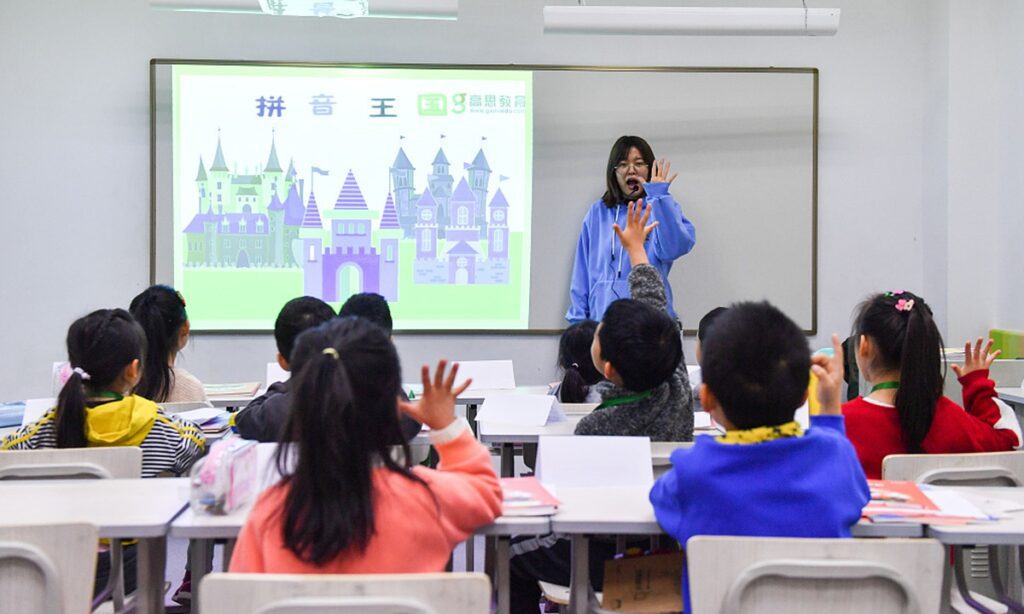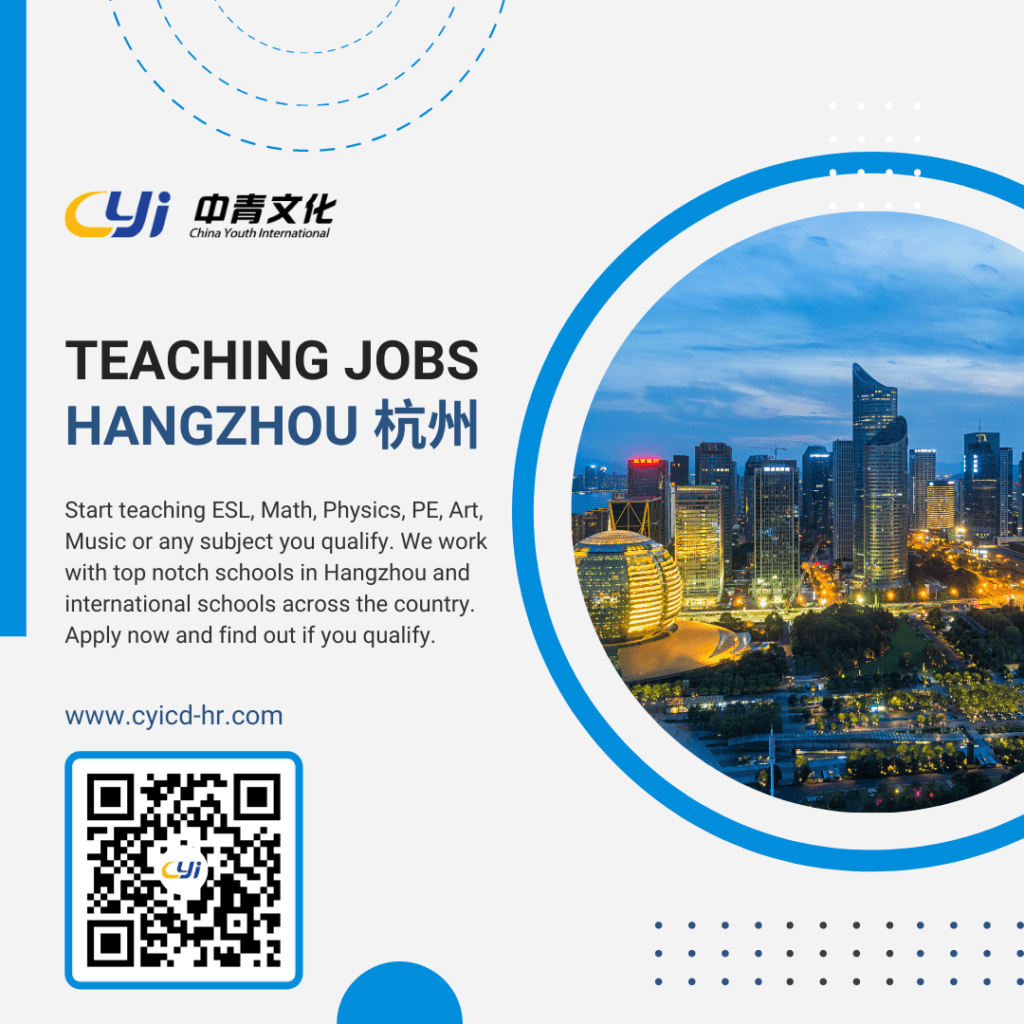China Bars Education Training Centers from Raising Money & You Might be Affected By this New Policy – but it’s not too late to apply for a public school

China’s vast private education sector received a death blow as the country introduced sweeping measures, including barring curriculum-based tutoring institutions from raising money through stock market listings, in a bid to correct disorderly competition in the industry and ease the burden on Chinese students and their families.
Foreign capital is also not allowed to control or participate in the private education sector through methods such as mergers and acquisitions, entrusted operations, or franchise chains, said the document issued by the General Office of the Communist Party of China (CPC) Central Committee and the General Office of the State Council, the cabinet, on Saturday.
As capital rushed into the lucrative private education sector in China, the value orientation of some tutoring institutions shifted from “teaching” to “profit,” leaving students and their parents as tools for capital, Chu Zhaohui, a research fellow at the National Institute of Education Sciences, told the Global Times on Sunday.
In 2020, the coronavirus forced Chinese children to study at home for some time, which brought huge popularity to online education. China’s education industry raised 116.4 billion yuan ($17.96 billion) as a result, according to consulting firm iResearch. Online education accounted for 89 percent of the financing.

Driven by capital, many tutoring institutions spent heavily on advertising and marketing, and some even invested or speculated financially with students’ tuition money. Some institutions provided loans to attract students, according to a Sunday article by the National Supervision Commission and the Cen¬tral Commission for Discipline Inspection of the CPC.
The concerns are not groundless. Statistics show that the number of after-school tutoring institutions for primary and secondary school students is almost the same as that of public schools in China, which may form a parallel educational system beside the national system, warned the article.

Wang Ying, the mother of a girl in the second grade in a Beijing primary school, spent 47,500 yuan a year on her daughter’s after-school courses including English, math, Chinese, badminton and Chinese classic dance. The tutoring fees accounted for 30 percent of the family’s total annual spending.
“Parents in China are in a panic. Everybody takes after-school courses and there is no solution to this issue,” Wang told the Global Times.
The China Association for Non-Government Education, together with more than 120 after-school tutoring institutions, issued a joint proposal on Saturday, saying they supported the central government’s decision and will put the policy into practice.
But there’s bound to be a huge impact on their businesses and shockwaves in the stock markets.
A staff member from Speiyou.com under NYSE-listed Chinese education company TAL Education Group told the Global Times on Sunday the company is cutting jobs, but its overall operations remain normal at present, including summer holiday training courses.
“Most employees of Tipaipai, a study tool under Speiyou.com, had already left and many staff in departments targeting very young students also quit,” said the person.

A Beijing-based staffer at online English training agency VIPKid told the Global Times on Sunday that the company has been laying off staff for several months and there’s “a rumor that the staff will be cut from the current level of nearly 5,000 to around 1,000.”
“Positioning tutoring companies as not-for-profit and possible price-fixing measures will have a significant adverse impact on the profitability of Longwen Edu,” the after-school tutoring institution targeting K-12 students, said on Sunday.
Shanghai-based Only Edu said its revenue from subject tutoring accounted for 55 percent of the total in the fiscal year of 2020. The overall operations of the company are stable, and the company has taken the initiative to respond to the latest call, it said on Sunday.
Reports that Chinese authorities planned to further tighten regulations on the private education industry caused the shares of TAL Education to fall 70 percent and New Oriental Education and Technology to drop 54 percent on the US market on Friday.
Market observers said that shares in the sector may suffer a devastating blow on Monday.
Although they bear a huge financial burden, Chinese parents reacted differently to the new policy. Some said they support the policy, as they hope their children could take a breather from the heavy daily load of homework.
But a Beijing-based mother of two children told the Global Times that demand isn’t going away. “I will still sign up for the courses for my children, because if they don’t take the courses, we will be left behind.”

Why Teach in Public Schools?
You might want to use the time to explore new skills through online training and network within China for opportunities you don’t find in your home country.
None of these things are possible in a training center, where you will be worked aggressively, with expected overtime and comparatively little vacation.
Public schools are different. Technically, you still have to work 20 – 40 hours. However, the way it works is that you teach a maximum of 20 hours, and often less than that (16 tends to be the average). The excess hours are considered “office hours” in which you do prep work, grading, etc. But “office hours” are often flexible things, some schools don’t care if you complete them, especially if you tell them you prefer to work from home using your home computer.
Even if you have to complete them because you have a strict boss, public school office hours are not the same as training center office hours. You do not have excess responsibilities. This is a great time to learn Chinese, for example.


Get Long, Half Paid Holidays
—-
Public schools also offer the public-school half paid semester breaks. That means, for every semester you work, you get about 2 months of paid vacation, sometimes more (depending on how the school handles scheduling).
You also get all the other public holidays in China. These amount to about three weeks between a day off here, a day off there, a week off here, etc
Reasonable and Stable Salary
—-
Even with all that, public schools still offer pretty reasonable salaries.
You can expect between 14,000 – 36,000 RMB, depending on your experience, position and interview performance. Apart from that figure you also get all paid for housing, flight tickets and lots of other benefits and work perks.
This is already higher than what many training centers with much higher workloads offer, plus it’s more stable.
Legal Working Visa
—-
One more thing about why this PARTICULAR public opportunity is great for new and transfered teachers.
Public schools are run by a handful of big HR networks like CYI , which connect their hundreds of teachers in a big community. They’ll offer free ESL training and onboarding, free Chinese lessons, and free events. That way, you’ll never feel alone or isolated (an unfortunately common feeling for new teachers in China) because you’ll know hundreds of other teachers doing the same thing as you.
And because they have tons of teachers they work with, they’re the most experienced hands in handling visa issues. (You’d be surprised how many employers in China do not know visa laws, regulations, and even basic procedures!)
Here is where China Youth International shines, we will provide full assistance with your visa application and ensure that all your papers are in order.





Why teaching in training centers (which are barred now) isn’t the best choice after all?
1) Possible legal troubles
Training centers around the world tend to have a reputation for dabbling in the “gray area” of legality. Specifically in China, there are many cases of training centers not acquiring the appropriate work visa for their foreign teachers. Do your research about visa requirements yourself, and look into the company before you sign a contract with them. A traditional public school offers better and safer path to obtaing the legal documents, because they mostly likely have a closer connection with local government, and are usually more cautious. China Youth International ( CYI ) provide a team of visa experts to help you with all your paper work and visa, so you can stay worry free and focus on other things.
2) Difficulty in meeting other friends
Yes, you’ll definitely be able to build friendships within the training center community. But if you’ve already lived in the country or you have lots of friends who don’t work in training centers, it’s probably going to be difficult to see them due to the difference in your schedules. Don’t under-estimate this difference. Especially in bigger cities, people will just want to hang out on nights and weekends, and that’s when you’ll be working.
3) Lack of professionalism
Of course, not all training center are the same. But unless you’re working in a huge company, there could be a huge lack of professionalism. There are literally thousands of different English training center companies out there, and many of them are small or start-up companies. This could lead to a lack of communication and professionalism, especially when you add in cultural differences and complicated visa policies.
4) You could get bored
You’ll teach the same lessons again and again. This has its pros, but also its cons. You could grow bored of going through the same lessons hundreds of times. If you’re considering an ESL career longer than a year or two, you might want to move on to a traditional public school after a while. And again CYI can help you to smoothly transfer to a public school
5) Your teaching skills might not improve in the long run
When you teach the same lesson enough times, you’ll go into autopilot. Once you’ve got a lesson plan down, you won’t feel the need for further improvements. That could affect you the next time you are looking for a job. If you’re serious about an ESL career, a traditional school would help you hone your skills and expose you to a variety of classroom experiences
6) Little career advancement
As a foreign teacher, you’ll probably not be able to move up the career ladder. Expect to forever be a foreign teacher. Again, if you’re not interested in an ESL career, that’s probably fine for you! But don’t expect to be able to level-up your career the same way you would in a traditional public school in China.
7) Money >> Education
Don’t be fooled. Most training centers are not in it for education. It is a business. Most training centers will make decisions based on how they could get more students or earn more tuition instead of making decisions that would help improve student and teacher experience. This could result in finance instability and unlike public schools where your salary is stable and your rights as a teacher are protected.
For some people, training centers are the perfect opportunity for teaching overseas. For others, they’re looking for a different path.Unfortunately with China barring training centers now, this will hugely affect lots of teachers resulting them in losing their jobs and source of income. We are here to help you every step of the way, choosing your school, subject you want to teach, city you want to be relocated to, flight tickets, housing, health insurance and paid holidays. Our visa experts team will help you with the whole process. And as we are one of a very few companies in China that directly partner with schools and apply for visas. We are not an agency that works in the middle, we hire teachers and stay with them their whole contract period and we also have a wonderful community of teachers, after all we have been helping teachers to work in China for over 20 years now.
source of the official article >> https://www.globaltimes.cn/page/202107/1229595.shtml

